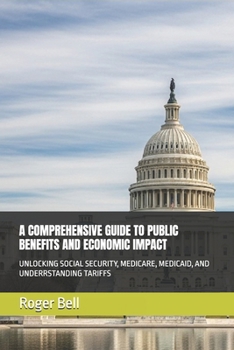A Comprehensive Guide to Public Benefits and Economic Impact: Unlocking Social Security, Medicare, Medicaid, and Underrstanding Tariffs
Social Security, Medicare, and Medicaid are three distinct, but related government programs designed to provide a social safety net, primarily in the areas of income security and health care. Social Security, the Old-Age, Survivors, and Disability Insurance (OASDI) program, provides a monthly income to retired workers, disabled individuals, and their dependents. It is primarily funded through payroll taxes (FICA taxes) paid by both employees and employers. Medicare and Medicaid are both health insurance programs. Medicare is a federal program primarily for people aged 65 or older, as well as some younger people with specific disabilities or conditions. It has different parts, covering hospital stays (Part A), medical services (Part B), and prescription drugs (Part D), and is funded through a combination of payroll taxes, premiums, and general revenue. Medicaid is a joint federal and state program that provides health care coverage to low-income individuals and families. Eligibility and benefits can vary by state. Many people with low incomes who are also eligible for Medicare are "dually eligible" and can receive benefits from both programs. Tariffs are a different concept entirely. They are taxes imposed by the government on imported goods. Tariffs are used to generate revenue, protect domestic industries from foreign competition, or as a tool in foreign policy. The cost of a tariff is typically paid by the importing company, but the burden is often passed on to consumers through higher prices for goods. Unlike Social Security, Medicare, and Medicaid, which are social welfare programs, tariffs are a trade policy tool.
Format:Paperback
Language:English
ISBN:B0FM4843RC
ISBN13:9798297576667
Release Date:August 2025
Publisher:Independently Published
Length:452 Pages
Weight:1.32 lbs.
Dimensions:0.9" x 6.0" x 9.0"
Customer Reviews
0 rating





